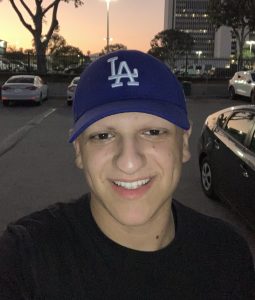“Congress shall make no law respecting an establishment of religion, or prohibiting the free exercise thereof, or abridging the freedom of speech or of the press, or the right of the people peaceably to assemble, and to petition the government of a redress of grievances.” As stated in the First Amendment, everyone has the right to speak freely…even on a university campus.
Colleges and universities commonly encounter a problem with students’ right of free speech. It is not an easy task for such an institution to balance this American right with issues concerning civility, dignity and respect.
Problems arise in the classroom, during meetings, on the campus, etc. However, one of the most common areas of dispute occurs with university student newspapers. Since there are students running the publication, numerous ideas -both similar and opposite of one another – arise. When this occurs, certain articles and stories are published that may cause some concern within the administration of the university itself.
When a controversial topic is researched and “in the works,” so to speak, the students can encounter several obstacles along the way. Members of the faculty and administration may be hesitant or negligent to offer comment on the matter if it is viewed as too contentious.
However, to avoid these complications students often face, many if not almost every college and university has created speech codes. These rules and guidelines are supposed to enforce acceptable forms of speech that are not offensive to others. The administrations generate these guidelines and usually distribute them in a student handbook of some sort.
C.W. Post has theirs in several places, including the “Faculty Governance Handbook.” That handbook supports freedom of speech “without institutional censorship” on the campus. Specifically, it states
“…Academic freedom is understood to mean the opportunity for each member of the Faculty to discuss subject matter fully in the classroom, to engage in research and publish results without institutional censorship, and to write and speak as a citizen without institutional prior restraint or subsequent disciplinary action when the Faculty member acts individually and does not purport to represent C.W. Post Campus or Long Island University as a whole.”
The idea that a student can freely say what he or she wants and not be punished for his or her statement is also noted in the C.W. Post Student Handbook, “Long Island University/C.W. Post Campus supports the rights of individuals, clubs and organizations, who are members of the C.W. Post Campus community, to free speech and peaceful assembly.”
It is no question that this can be a difficult concept for any university to handle. However, it is difficult for students to report the news to its campus when they are not given access to the most information possible. Much of this difficulty stems from a number of bodies and groups at the university. The Public Relations department and administrative officials may wish to censor what is said or not said by faculty and other officials on campus. Students on the C.W. Post campus as well, are usually redirected to the PR department in order to receive a comment, quote, or further information. Why can’t the person directly related to the matter talk about it though.
By rerouting student reporters to just one source, it limits the amount of information and content that is undoubtedly attainable for the story. Having multiple sources for one article can show the dynamics and different aspects of the story, whether it is good or bad. “Even Woodward and Bernstein looked to have two sources on all of their Watergate stories,” said Sandra Mardenfeld, C.W. Post’s Head of the Journalism. Having more than one source can help clarify or confirm a piece of information. “You never know what is real information or what is misconstrued,” Mardenfeld said. “That’s why is so important to do your own research. You need to know that the information you send out is as correct as possible.”
Within the past few years, a few universities have shut down their student newspapers all together due to censorship and “loss of free expression,” as one editor of The Cedars (Cedarville University in Ohio) stated. Cedarville’s problem arose when the newspaper published certain articles that discussed matters that the university viewed as contrary to the private Christian school’s religious mission. According to the school’s administration, “there were problems with articles that did not necessarily reflect biblical truth, what the Bible has to say about an issue.” The university administration responded by shutting down the newspaper.
The Dalton School, a private school located on Manhattan’s Upper East Side, also faced a few revision problems. About a month ago, the high school newspaper, the Daltonian, published an edition that was confiscated by school officials before students or faculty could even read it. The school administrators claimed that the newspapers were taken before distribution because there were incorrect facts in a poll about student drinking that was on the front cover. Officials then asked the staff of the Daltonian to produce a revised version of the article with the administration’s comments as well.
However, there is a bigger issue than whether a student newspaper was shut down or forced to reprint. It hinders the campus itself when faculty or administrators neglect to comment on a topic. This does not give the campus, including students, faculty and staff, and even the outside community, the entire story that it could have received. There may be important, missing information that someone may have provided, though it was not given since that someone was afraid of a consequence.
The point is that most of the time, especially in the Pioneer’s case, the students simply want to get the whole story. They are young, active reporters learning and experiencing how to be future journalists, writers, photographers and editors. They don’t want to hinder the image of the school or any administrator or faculty member. They are simply reaching out to the university to gain as much information as possible.
The Pioneer strives to provide the most accurate information and the most obtainable version of the truth to its campus and community. Without access to the university’s administration, staff, and faculty’s comments and quotes, this is not achievable.



Be First to Comment